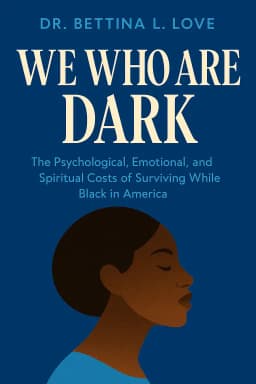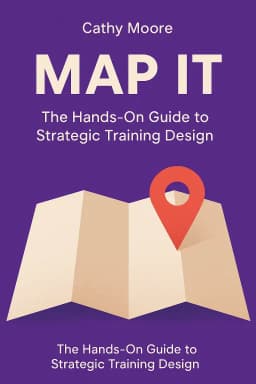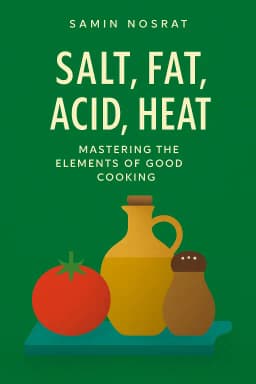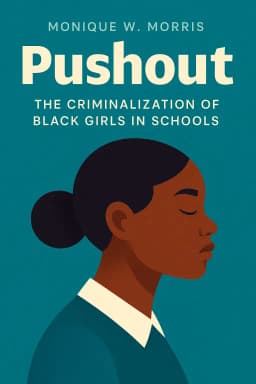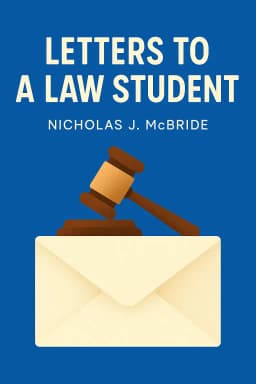
How Lawyers Really Think
Golden Hook & Introduction
SECTION
Laura: Okay, Sophia, pop quiz. You're a first-year law student, drowning in reading. What's your survival strategy? Sophia: Easy. Three things: caffeine, crying in the library, and pretending I understand what 'ratio decidendi' means. Laura: That's... alarmingly accurate. And it's exactly why this book exists. We're diving into Letters to a Law Student by Nicholas McBride. And this isn't just any academic—McBride is a Fellow at Pembroke College, Cambridge, and he wrote this book because he was genuinely concerned about a decline in the critical thinking skills of students entering university. He's on a mission to fix it. Sophia: A rescue mission for our brains. I'm in. But it’s funny, for a book meant to rescue us, he starts with a pretty terrifying question. Laura: Oh, he goes right for the jugular. He basically asks: "Are you sure you should even be here?"
The 'Astonishing Hypothesis': Is a Law Degree a Waste of Time?
SECTION
Sophia: Right! He talks about this "astonishing hypothesis." The idea that if you want to be a lawyer, maybe you're better off not doing a law degree. That feels like a punch to the gut for anyone who’s just paid their tuition fees. Laura: It's a provocative idea, and it comes from some very senior legal figures, like the former Supreme Court Justice Lord Sumption. The argument goes that studying something else first—like history, or philosophy, or literature—gives you a broader 'general culture'. The idea is that you become a more well-rounded, interesting person, and then you can just pick up the law later with a one-year conversion course. Sophia: Okay, but hold on. That sounds great in theory, but can you really just 'pick up' the law? I feel like I'm trying to learn a new language that's been designed to be as confusing as possible. Laura: That's precisely McBride's point. He thinks that argument is dangerously naive. He tells this brilliant story to illustrate why. Imagine a massive explosion at a petrol refinery. Houses are destroyed, people are displaced, and they want compensation. A very intelligent history graduate, full of 'general culture', goes to the law library to figure it out. Sophia: And they just look up "law of explosions," right? Laura: Exactly! But there's no book called "The Law of Explosions." They're lost. They don't know that the answer is hidden away in a complex area called Tort Law, under a very specific and old rule called the 'rule in Rylands v Fletcher'. They lack the mental map of the legal world. McBride's argument is that a law degree doesn't just teach you facts; it gives you that map. It teaches you how legal knowledge is structured. Sophia: So the 'general culture' argument misses the point. It's not about knowing facts, it's about knowing the system. You can't just find the law if you don't know where or how to look. Laura: Precisely. You can't just Google it. McBride argues that this idea of simply 'finding out' the law is part of a wider, problematic 'cult of the amateur' in the UK—this belief that you don't need specialized training to excel. He says that's a recipe for mediocrity. Sophia: Wow. So he's not just defending a degree, he's defending the idea of expertise itself. That makes me feel a bit better about my life choices. Laura: It should! He’s basically saying that the three years you spend studying law aren't just about learning rules. They're about fundamentally rewiring your brain to think in a new way. Sophia: Okay, I'm intrigued. If it's not about memorizing, what is this secret mental toolkit that lawyers are supposed to have? What does 'thinking like a lawyer' actually feel like? Is it just being argumentative at dinner parties? Laura: It can lead to that, yes. But at its core, it’s about learning a new language of logic. And the most extreme, and frankly bizarre, example of this is a concept McBride talks about called 'legal fictions'.
The Secret Language of Law: How to Think, Argue, and Spot 'Legal Fictions'
SECTION
Sophia: Legal fictions? That sounds... dishonest. Like something out of a fantasy novel. Laura: It feels like it! A legal fiction is when a court deliberately pretends a situation is something it isn't, in order to achieve a just or practical outcome without having to rewrite an entire area of law. Sophia: You're going to have to give me an example, because that sounds completely wild. Laura: McBride gives the perfect one. It's a story about a Dean at an Oxford college. The college has a very strict rule: 'No dogs allowed on the premises.' But the Dean, being the Dean, has a beloved pet labrador that he keeps in his rooms. The college's governing body has a problem. They don't want to upset the Dean, but the rule is the rule. Sophia: So they have to kick out the dog? Laura: Or... they could use a legal fiction. The governing body holds a meeting and formally declares that, for the purposes of the college rules, the Dean's labrador is a 'constructive cat'. Sophia: A constructive cat?! You're kidding me. They just... redefined a dog? Laura: They did. And just like that, problem solved. The rule 'No dogs allowed' remains intact, but the Dean's animal, now legally a cat, is perfectly fine. That's a legal fiction. It's a lie, but it's a useful lie that preserves the system while allowing for a sensible exception. Sophia: My mind is a little bit blown. That sounds like cheating! How is that law? It feels like making things up as you go along. Laura: That's the initial reaction, but it happens in real law all the time. Think about a more serious case. McBride gives the example of a man who puts a bomb on a plane, not to kill anyone, but to destroy the cargo and claim the insurance money. The bomb goes off, and everyone on board dies. Is he a murderer? Sophia: Well, he didn't mean to kill them, right? He just wanted the insurance money. So... manslaughter? Laura: That's the logical conclusion. The definition of murder requires an 'intent to kill'. But the courts wanted to convict him of murder. So, they created a legal fiction. They ruled that if you do something where you foresee that death is a 'virtually certain' consequence of your actions, the law will pretend you intended it. They 'find' an intent that wasn't actually there. Sophia: Whoa. So they stretched the definition of 'intent' to make the punishment fit the crime. The 'constructive cat' is him having 'constructive intent'. Laura: Exactly. It's a powerful tool, but also a dangerous one. McBride's point is that a good law student learns not just to accept these fictions, but to spot them, to ask why the court is pretending, and to understand the real rule that's being applied under the surface. That's the deep-level thinking that separates a lawyer from someone who just reads rules. Sophia: Okay, that's a much bigger challenge than just memorizing cases. It's like being a detective and a psychologist at the same time. Laura: And this kind of complex thinking is exactly what gets tested in exams, which, let's be honest, is where the theory meets pure terror.
Surviving the Gauntlet: Exam Strategy and The Human Element of Law
SECTION
Sophia: Ugh, don't even say the word 'exams'. My palms are sweating just thinking about it. The idea of running out of time on a problem question is my actual nightmare. What's the one thing I absolutely must do? Laura: McBride is very clear on this, and it's all about discipline. His number one rule is ruthless time management. If you have three hours to answer three questions, you give each question exactly one hour. Not 65 minutes for your best topic and 55 for your worst. Sophia: But what if you're on a roll with the first question? It feels wrong to stop when you have more to say. Laura: It feels wrong, but it's mathematically correct. The first 45 minutes of writing on a question gets you the bulk of your marks, say 60 out of 100. The last 15 minutes of polishing might only add another 5 or 6 marks. But the first 15 minutes on the next question will get you 20 or 30 marks. Sacrificing a whole chunk of a question for a few extra points on another is, in his words, "suicidal." Sophia: That is such a clear way of putting it. It's a game of points, not a quest for the perfect answer. Laura: And the other key is the first paragraph. McBride quotes an examiner who says he can practically grade an essay after the first paragraph. You have to come out swinging. State your argument, your central point, directly and confidently. Don't start with "In this essay, I will discuss..." Start with "The law on homicide is a mess, and here's why." Sophia: That takes guts. It feels safer to just describe the law first. Laura: Safety gets you a passing grade. A strong, clear argument gets you a first. But all this strategy can fall apart if you're overwhelmed by stress. McBride is very empathetic about this. He tells a personal story about his own contract law exam. Sophia: Oh, a war story from the author himself. I love it. Laura: He finished the exam and immediately started a post-mortem with a friend. He mentioned he'd avoided one question because it was all about a case he hadn't revised, a case called 'The Super Servant (No 2)'. His friend's face went pale. The friend had answered that exact question... and had never even heard of 'The Super Servant (No 2)'. Sophia: Oh no. I can feel the cold dread. Laura: Exactly. Both of their days were ruined. McBride's lesson is absolute: once the exam is over, it's over. Never, ever discuss it. You can't change it, and you'll only cause yourself and others misery. Sophia: That is golden advice. But what about the stress before and during the exam? It can feel so all-consuming. Laura: This is where McBride gets almost philosophical. He says stress comes from a feeling of powerlessness over things that matter to you. So, the antidote is to focus relentlessly on what you can control. You can't control the questions or the examiner, but you can control your preparation, your notes, your practice essays, and your mindset. Sophia: That makes sense. Take action on the things you can influence. Laura: And for the things you can't, he suggests a dose of ancient wisdom. He actually quotes the Serenity Prayer: "God, grant me the serenity to accept the things I cannot change, the courage to change the things I can, and the wisdom to know the difference." It's about recognizing that worrying about the examiner's mood or whether you'll get a tough question is pointless. You let that go, and pour your energy into your own work.
Synthesis & Takeaways
SECTION
Sophia: Wow. So we've gone from questioning the value of a law degree, to learning its secret language of 'constructive cats', and finally to using the Serenity Prayer to survive exams. It's a much deeper journey than I expected. Laura: Exactly. McBride's message, which has made this book a kind of 'law school bible' for so many students, is that law isn't a body of facts to be learned; it's a discipline of the mind to be cultivated. It's about building judgment, humility, and even hope. Sophia: That idea of humility really sticks with me. Realizing that even the law has to 'pretend' sometimes with legal fictions makes it feel more human and less intimidating. Laura: It's a profound insight. The law isn't a perfect, god-like system of logic. It's a human creation, full of patches and workarounds, all striving towards an idea of justice. And studying it is about learning to appreciate that messy, brilliant, and deeply human process. Sophia: It makes you wonder, what's the 'constructive cat' in your own life—the fiction you accept to make things work? Laura: I love that. A little bit of legal philosophy for everyday life. We'd be fascinated to hear your answers. Let us know your thoughts on our socials. What's the best or worst piece of advice you got in your first year of study? Sophia: And what's your personal 'constructive cat'? I feel like mine is pretending that a 10-minute tidy-up counts as 'cleaning the apartment'. Laura: This is Aibrary, signing off.


